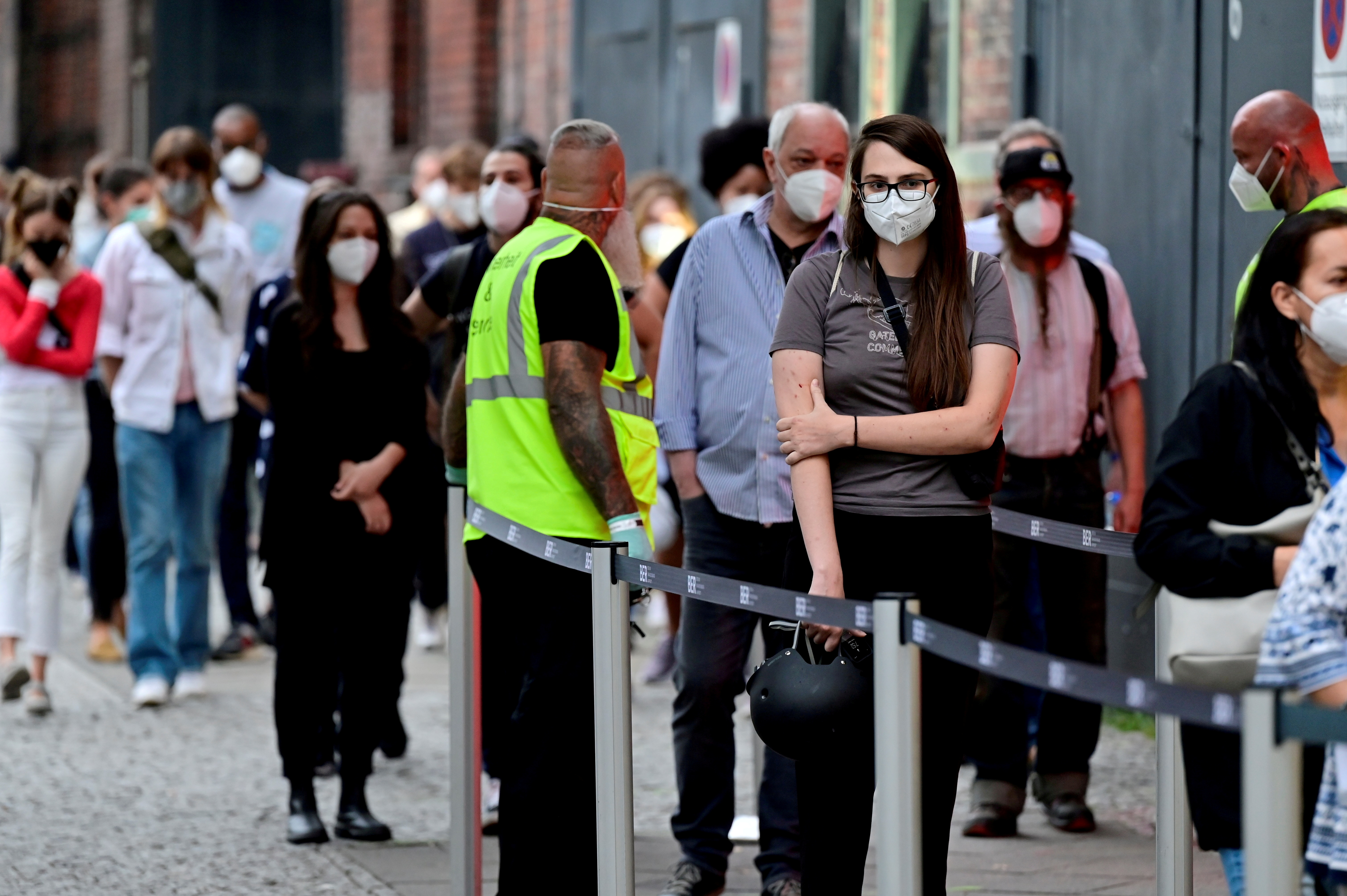
People queue to receive a vaccine against the coronavirus disease (COVID-19)
BERLIN, Oct 24 (NNN-AGENCIES) — The premiers of Germany’s 16 states urged the federal government to maintain a countrywide legal framework for imposing restrictions to contain the coronavirus pandemic.
The premiers saw it as “of the greatest significance that the states are allowed the option of taking the required suitable measures for a limited period to prevent the spread of Covid-19,” a statement from the office of the premier of North-Rhine Westphalia said on their behalf.
The premiers were responding to a suggestion from federal Health Minister Jens Spahn to the effect that the current federal emergency provisions should come to an end when their parliamentary mandate expires on Nov 25.
The premiers’ resolution, passed at the end of a two-day meeting at Koenigswinter in North-Rhine Westphalia, came as coronavirus case numbers crept steadily up.
The official disease control body, the Robert Koch Institute (RKI), reported on Friday that almost two-thirds of people resident in Germany have been fully vaccinated against the coronavirus.
In its weekly report published on Thursday, the RKI warned of a spike in Covid-19 cases over the coming months. “It is expected that in the course of autumn and winter, the increase in the number of cases will accelerate,” it said.
By Friday, just 66.1 percent of the population had received their two jabs, while 69.1 percent had been vaccinated at least once. The figures are lower than in the neighbouring countries Denmark and the Netherlands but much the same as in France.
The seven-day incidence rate climbed on Friday morning to 95.1 per 100,000, going past 90 for the first time since mid-May. It was 85.6 on Thursday and 68.7 a week ago.
The reproduction rate – or R-value – is also climbing, and was put at 1.28 on Friday.
In a survey of the economic costs of the pandemic, the Kiel Institute for the World Economy (IfW) predicted that hospitalization of Covid patients would cost 180 million euros (210 million dollars) per week through the winter.
Increasing the vaccination rate would help to reduce this, the IfW said.
The situation is complicated by the fact that Chancellor Angela Merkel’s Cabinet is now governing in an acting capacity as coalition talks proceed.
Spahn said that from his point of view the initiative had now passed from the caretaker government to the new parliament. — NNN-AGENCIES



